With Canyon having released a carbon-only, 29in-wheel-only Spectral last year, it was no surprise that more affordable alloy models and a 27.5in version of its popular trail bike arrived later in the year.
We weren't expecting a mullet version, though – with a 29in wheel at the front and a 27.5in wheel at the back.
Canyon seems to have taken the 'business at the front, party at the back' mullet in-joke to heart, with a coil-shocked bike that eschews the lighter-weight, perkier-pedalling 29/29 or 27.5/27.5 air-shock builds that we very much expected to see.
There's no doubt that the CF8 CLLCTV (pronounced 'collective') Spectral looks rad, but the eternal question is… how does that translate on the trail?
Spectral CF8 CLLCTV frame and suspension
If there's one thing you can say about Canyon's chassis, it's that they're always tidy affairs; clean lines, excellent attention to detail and sorted aesthetics are almost the company's trademark. And, as ever, this Spectral appears to have all of that.
Cables are touted to be push-in, pull-out, with proper guiding front-to-rear to make our lives easier.
Bearings have extra sealing and well-formulated grease to keep the weather out.
There's down tube strike protection and chainstay slap protection that's ridged to further reduce noise, too.
Pivots are designed to be easy-access, while finishing touches such as the neatly integrated chainguide and an under-top-tube kit-carrying accessory bolt, show thought has been put in.
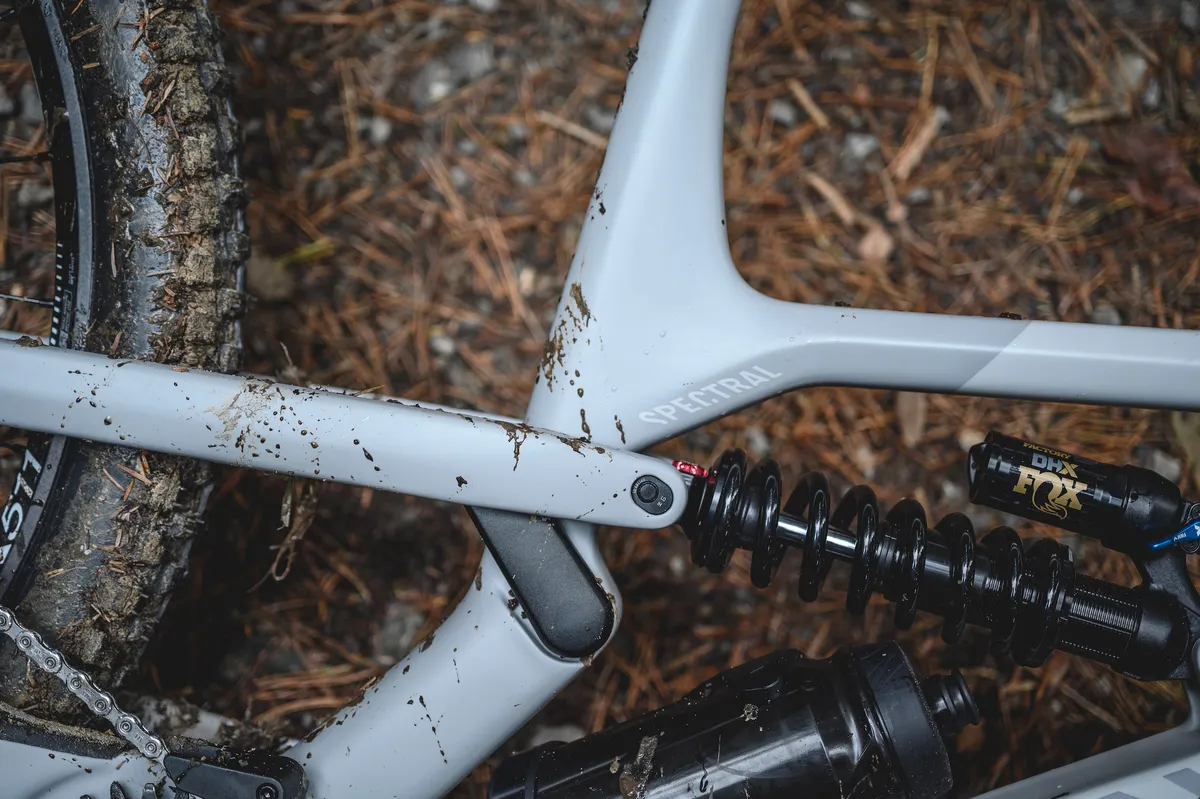
The four-bar linkage provides 150mm of travel, portioned out by Canyon's 'Triple Phase' suspension kinematic. It's one we've seen on multiple Canyons over the past couple of years and consistently stands up to scrutiny: supple, supportive and progressive – pretty much everything you need.
It's been tweaked slightly for this version of the bike, with a touch more anti-squat around the sag point and a bit less kickback when you really slam the bike into the ground.
When it comes to geometry, the mullet Spectral is well proportioned, borrowing its front-end from the 29er and its rear from the 27.5in bike.
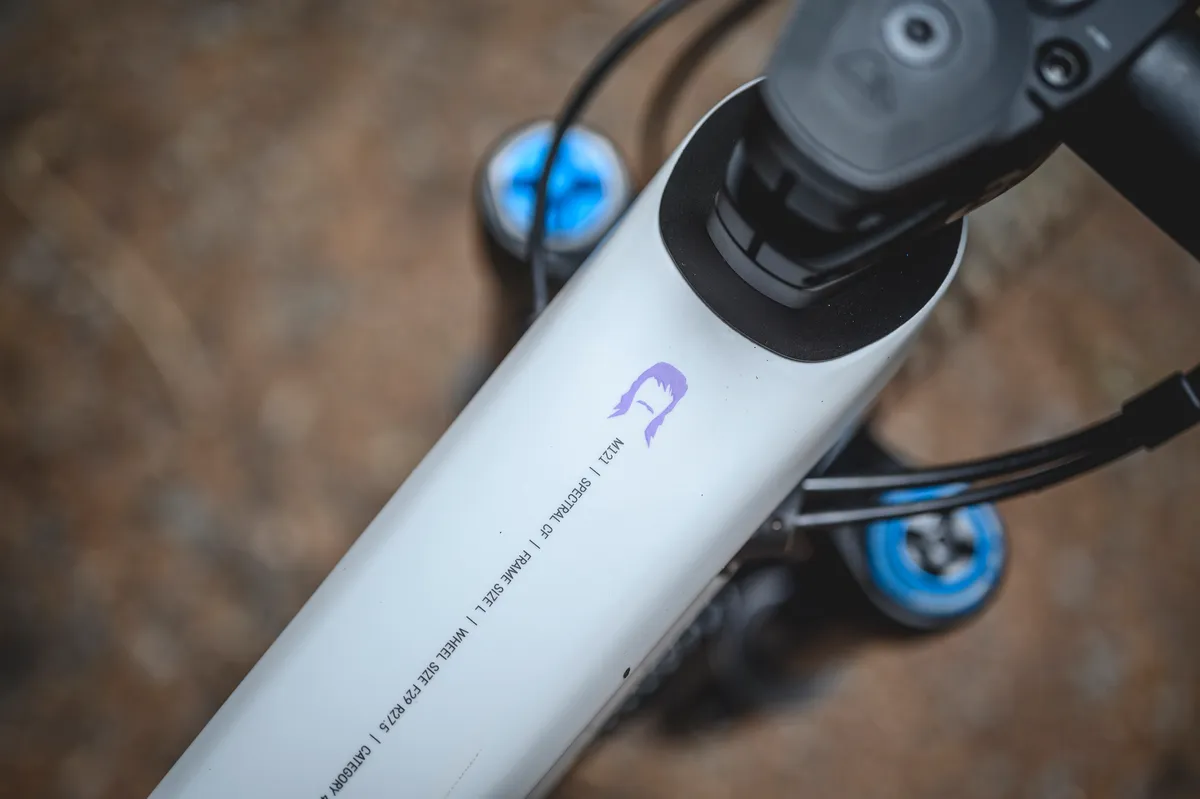
Reach sits at 480mm on my size large, the fork exits the 115mm head tube at 64 degrees and the rear stays are 432mm.
The seat angle is around 77 degrees, depending on the height of the saddle. For example, at minimum insertion and maximum extension, it measures 76 degrees, but if you run the seatpost slammed with the dropper limited to 125mm travel, it will measure closer to 78 degrees.
There's also a flip chip if you want to steepen everything by 0.5 degrees.
Spectral CF8 CLLCTV specifications
Canyon has clearly erred towards the burlier end of the trail spectrum, especially with this build, by speccing a Fox DHX coil shock – a surefire way to add attitude.
While coil shocks are harder to tune for rider weight (because it's the physical spring that needs to be swapped), Canyon is shipping each bike with both a heavier and lighter spring.
This, it says, should hit 90 to 95 per cent of riders, with only the real outliers in terms of height/weight potentially needing to source a different spring.
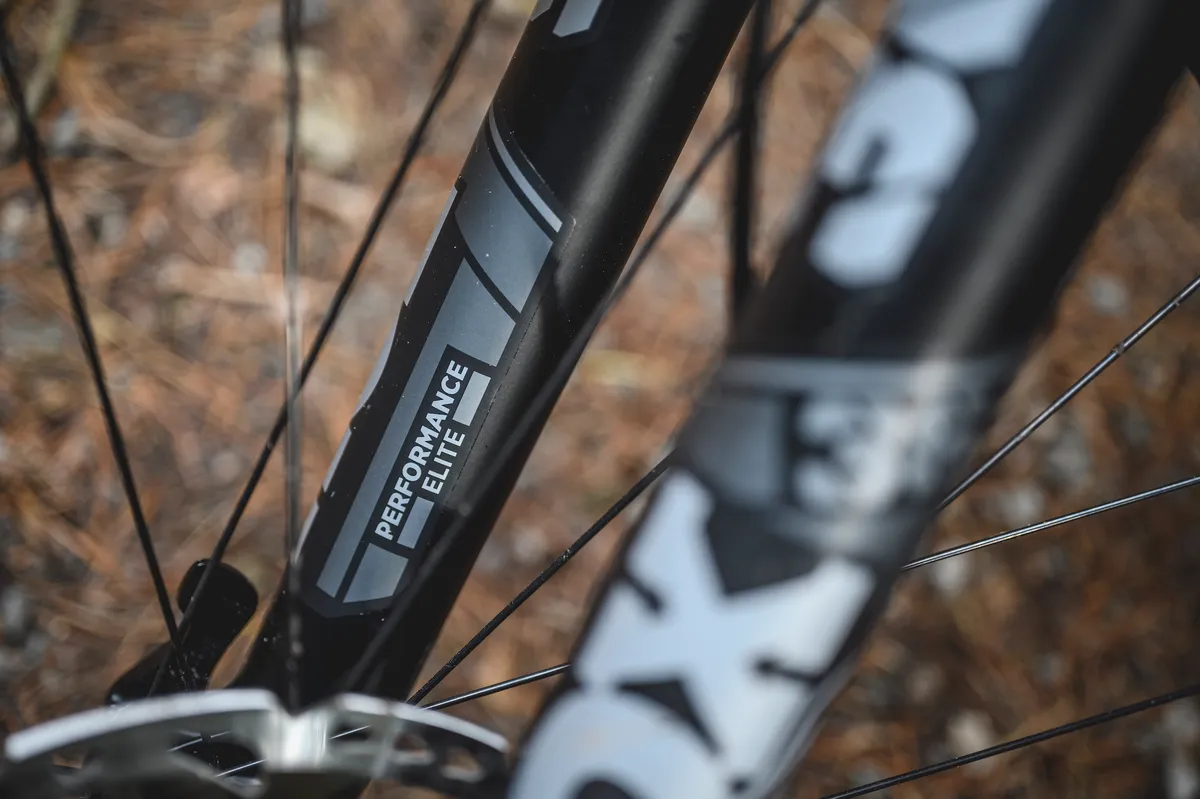
At the front, a Performance Elite Fox 36 with the GRIP2 damper matches that big-hit capability. Our impression of the latest version of the 36 is that it's more comfortable and more real-world tuned than the previous versions.
DT Swiss and Maxxis provide the wheels and tyres, both of which are suitably stout and more than up to the job.
Shimano's SLX/XT drivetrain, as well as punchy four-pot brakes, is more than capable of getting you up and down the hills with minimal stress.
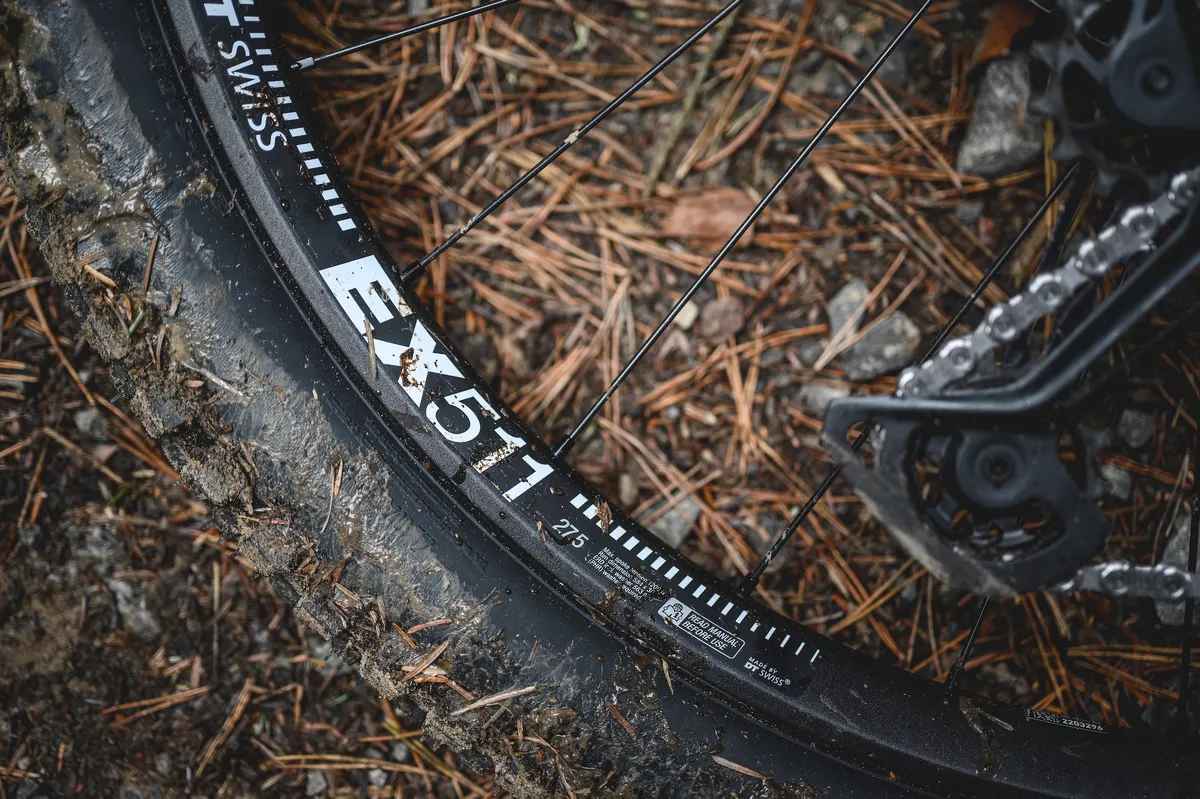
While own-brand finishing kit is often seen as a cheap way to complete a build, Canyon claims that its G5 series of components make no compromises.
The '5' in the name refers to Canyon's method of classifying the type of riding the bikes (and components) are designed for.
The Spectral, with its '4' rating, is designed for up to EWS racing, while the Canyon Sender DH bike, for example, is rated '5'. As such, the G5 component line (including a nice top-loading stem – much easier to fit a bar to) is rated for World Cup downhill racing.
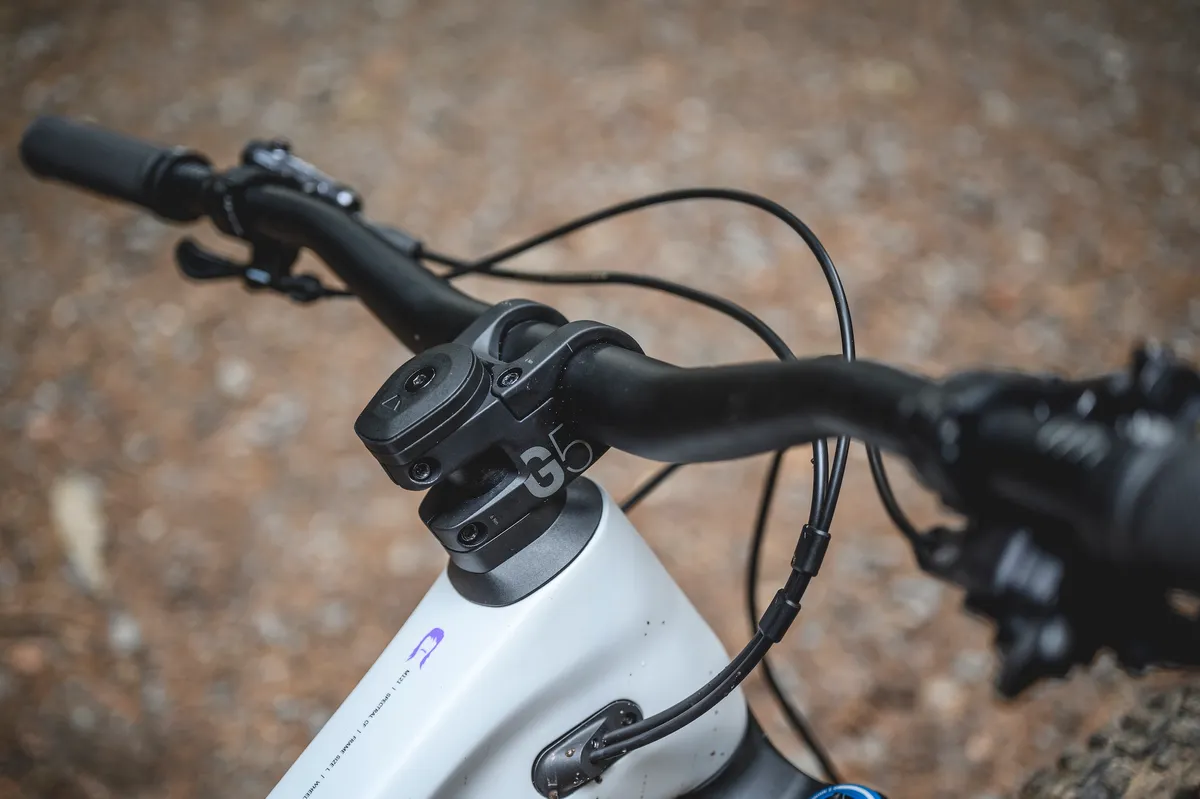
Canyon has also added a new dropper post with travel that can be altered easily by riders.
Squishing the post down a touch, undoing the collar and raising the saddle reveals a stepped internal shim. Rotating this allows you to adjust how much travel the dropper has in 5mm increments. Smart.
Spectral CF8 CLLCTV ride impressions
Many traits of a bike influence how it rides and, without an identical bike to compare it to (bar wheel size), it's difficult to pin down the mullet Spectral's personality just on its mixed wheels.
The Spectral consistently performs well, and when I reviewed the 29er version of the bike, launched a year ago, I said it was "one of the most capable trail bikes on the market".
And there's no doubt that Canyon's sorted suspension, well-finished frame and properly proportioned tube lengths combine to great effect here.
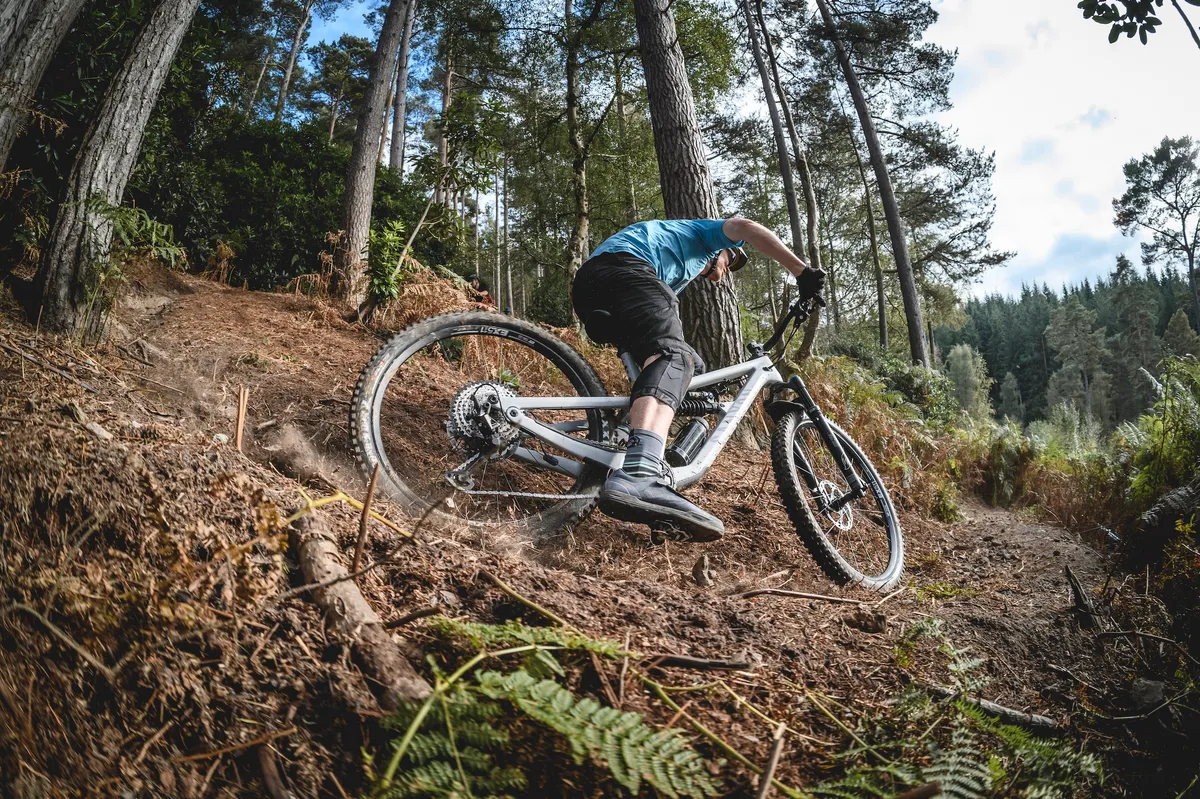
Spectral CF8 CLLCTV climbing performance
Compared to the full-29er Spectral, the CF8 CLLCTV doesn't quite climb as well. It's a touch more sluggish, doesn't respond quite as well to pedal inputs and generally suits a more 'sit up and spin' attitude to getting to the top of the hill.
One of the advantages of a coil shock is just how sensitive it is, but that also translates into marginally more shock movement under pedalling loads.
This adds a hint of sluggishness, even if rear-wheel grip is as good as it gets with a given tyre tread/pressure combo.
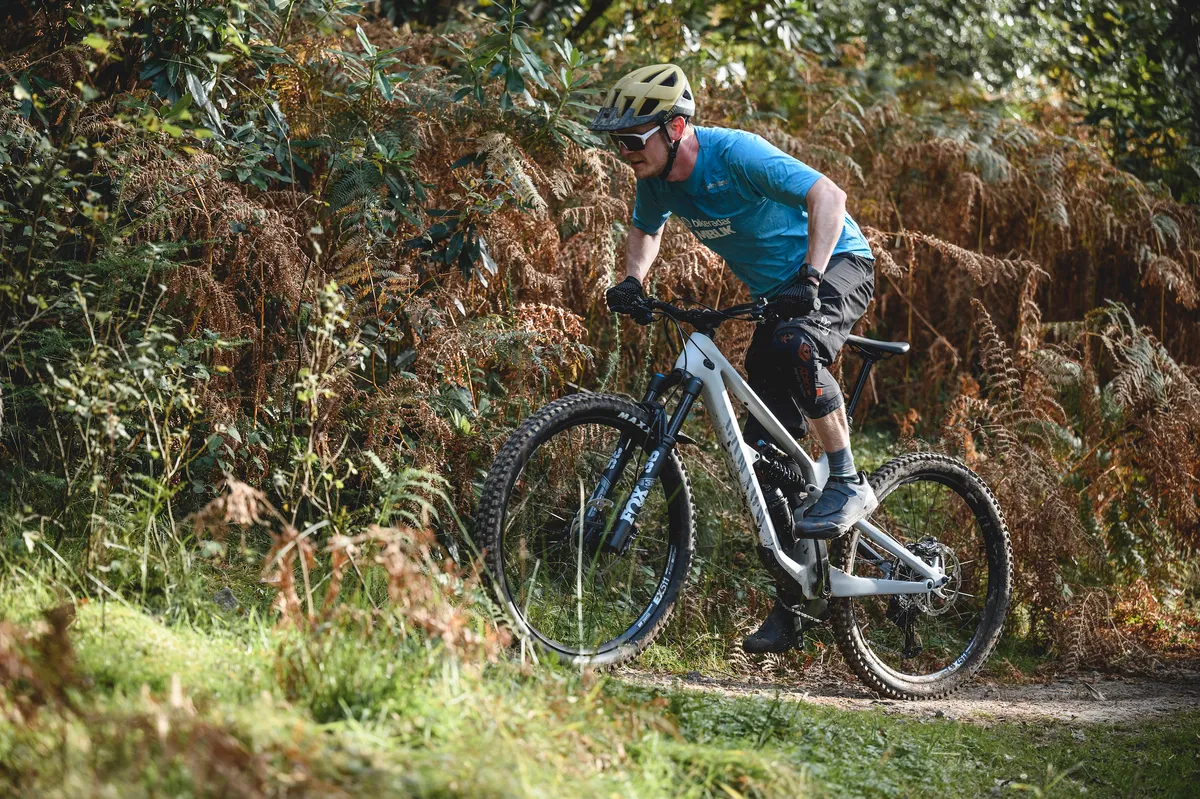
As such, the DHX's lockout switch is a god-send and, during testing, I flicked the blue lever up on pretty much every ascent I tackled.
This helped calm things down at the back, meaning more of my pedal stroke was put into forward (and upward) motion.
On super-steep and loose pitches, there was more grip with the shock open, but doing so led the suspension to compress more, slackening what was a fairly steep seat angle to one that didn't feel quite as perky as it might with a 29in wheel at the back and a slightly more climb-friendly air shock.
For reference, I briefly rode the Spectral 29 CFR at the bike's launch, with a Fox Float X Factory shock and 29in wheels front and rear, and rode last year's CF 29 extensively for review.
However, I doubt you'll be buying a coil-shocked mullet bike for its climbing performance.
Spectral CF8 CLLCTV descending performance
Descending is where this version of the bike is expected to shine.
The rear shock has tons of suppleness, smoothing out the trail's fine details, especially high-frequency, low-amplitude chatter. This boosts grip under braking and almost hides the speed you're able to hold.
There's plenty of progression in the suspension's linkage. During testing, I never managed to clang the shock off its bottom-out bumper, and even on the deepest hits, never found my ankles complaining of over-extension. This boosts your confidence when pointing towards jumps, drops and gnarled, matted roots.
The 36 Performance Elite is a great fork. Its chassis is stout, the air spring supportive and progressive, and the GRIP2 damper is equipped with a real-world usable range of adjustment, but it's almost shown up in terms of smoothness, given how good the back end is.
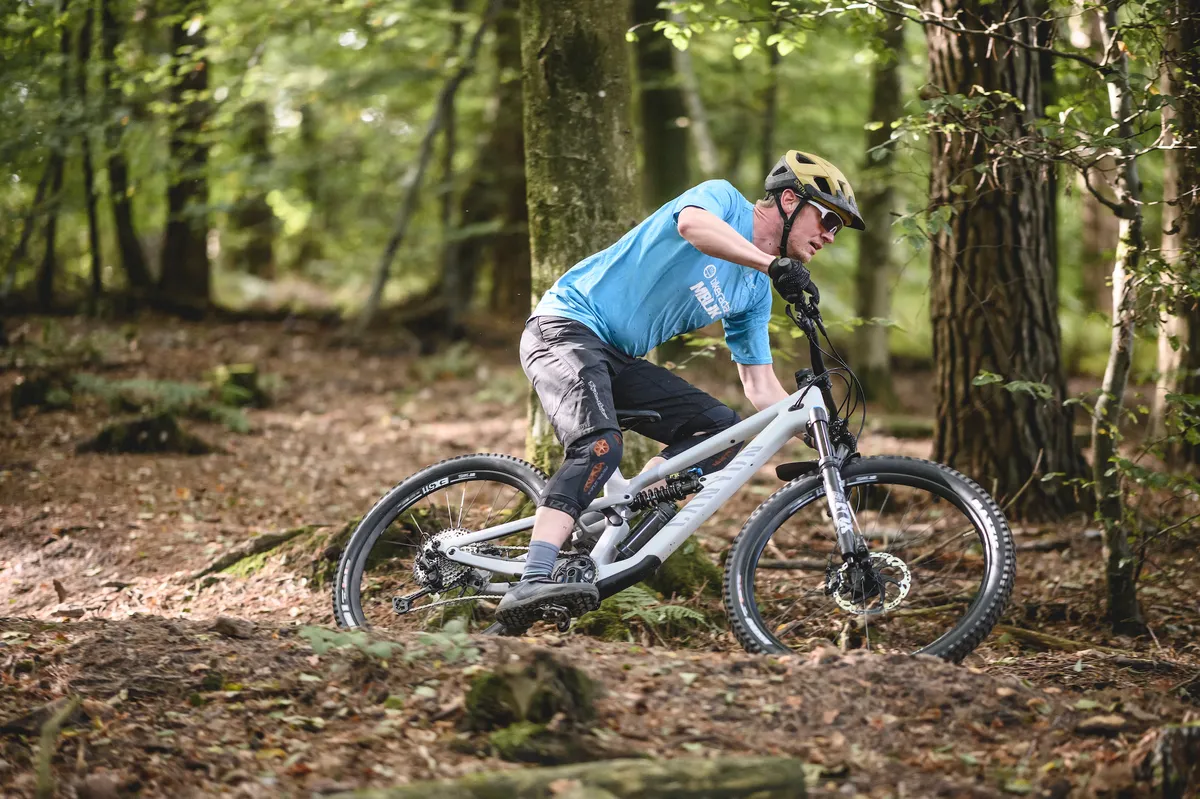
Super-plush sus
In terms of suspension, the only thing of note seems to be that the CLLCTV is reasonably comfortable getting into its mid-stroke.
While the bike doesn't simply fall straight into the deeper sections of its mid-stroke, it sits deeper into its travel than some others. A stiffer spring helps, but has associated drawbacks of being over-sprung.
Effectively, the support from the linkage and coil spring just holds the bike a little lower in its travel than it might be expected to do so, resulting in a very plush-feeling mid-stroke.
As such, an air-shocked version of the bike sits a little higher in my experience, helping it feel more reactive when pumping through rolling terrain.
That said, the support offered by the suspension and coil spring when you are in the mid- is good. This leaves the later portion of the stroke available for when you really need it.
Small-wheel wonder
If I had to put a finger on where the smaller rear wheel makes a difference, it would be in its willingness to scurry around a corner. The rear wheel feels very happy being let loose, slapping through corners with a hint of rear brake.
I love the confidence of the front wheel on the trail – it goes where you want it to and is utterly predictable. The back is a little more free to go where it wants, rather than carving in the same arc as a 29in rear hoop might, giving the bike an utterly engaging ride quality.
The shape really suits steep terrain, where the front wheel is placed well in front of the bar, and the bottom bracket is low enough to feel your weight is ideally placed to keep you pointing straight, rather than projecting over the bar.
The slightly smaller rear wheel also gives you that little extra bit of bum clearance when things get really steep – noticeable when I buzzed my backside jumping back on the 29er Spectral during testing.
While the shock is sensitive, the smaller rear wheel doesn't quite roll over bumps as well as the larger front. It doesn't hang up on mid-sized rocks and roots, but the 29er is smoother to ride than the mullet over such obstacles.
As such, if you were looking to race your Spectral, I'd put money on the 29er being faster.
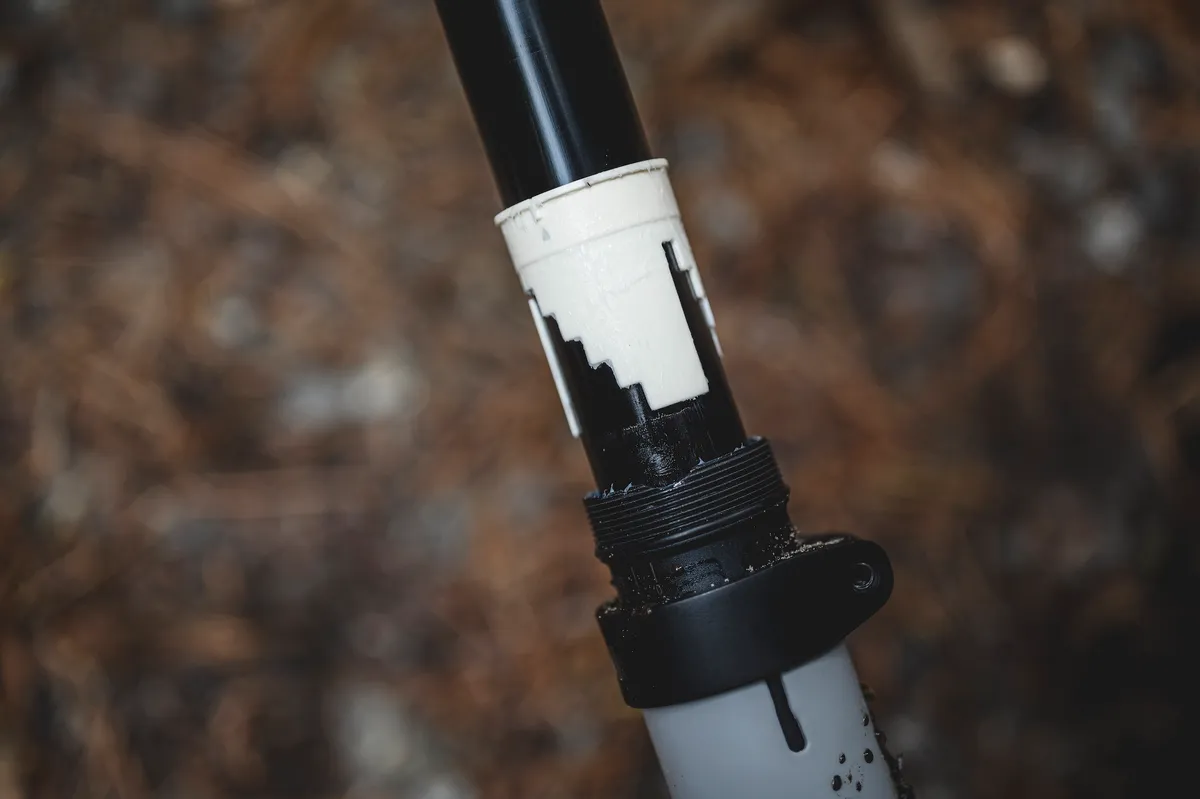
Spectral CF8 CLLCTV bottom line
The Spectral CF8 CLLCTV is a blast to ride. The geometry encourages you to explore the more demanding tracks you can find, while the suspension and kit bolted to the frame more than give you the back-up needed to get to the bottom of the trail safely.
For pin-sharp pedalling, high speeds and predictable control, I reckon the non-mullet bikes might be a better bet. However, the character the coil shock and mixed wheels have given the mulletted CF8 is enthralling and made it difficult to put at the back of the garage.
Product
| Brand | Canyon |
| Price | €4194.00, £3899.00 |
| Weight | 15.30kg |
Features
| Fork | Fox 36 Performance Elite |
| Stem | Canyon G5 AL 40mm |
| Chain | Shimano XT |
| Frame | Canyon Spectral CF Mullet |
| Tyres | F: MAXXIS Assegai 2.5 WT MT EXO R: MAXXIS Minion DHR 2.4 WT MT EXO+ |
| Brakes | Shimano XT |
| Cranks | Shimano SLX |
| Saddle | Ergon SM19 Enduro |
| Wheels | DT Swiss EX511 / 370LN |
| Shifter | Shimano XT |
| Cassette | Shimano SLX |
| Seatpost | Canyon G5 |
| Grips/tape | Canyon G5 |
| Handlebar | Canyon G5 AL 780 |
| Rear shock | Fox DHX Performance Elite |
| Bottom bracket | Shimano XT |
| Available sizes | XS, X, M, L, XM |
| Rear derailleur | Shimano XT |
